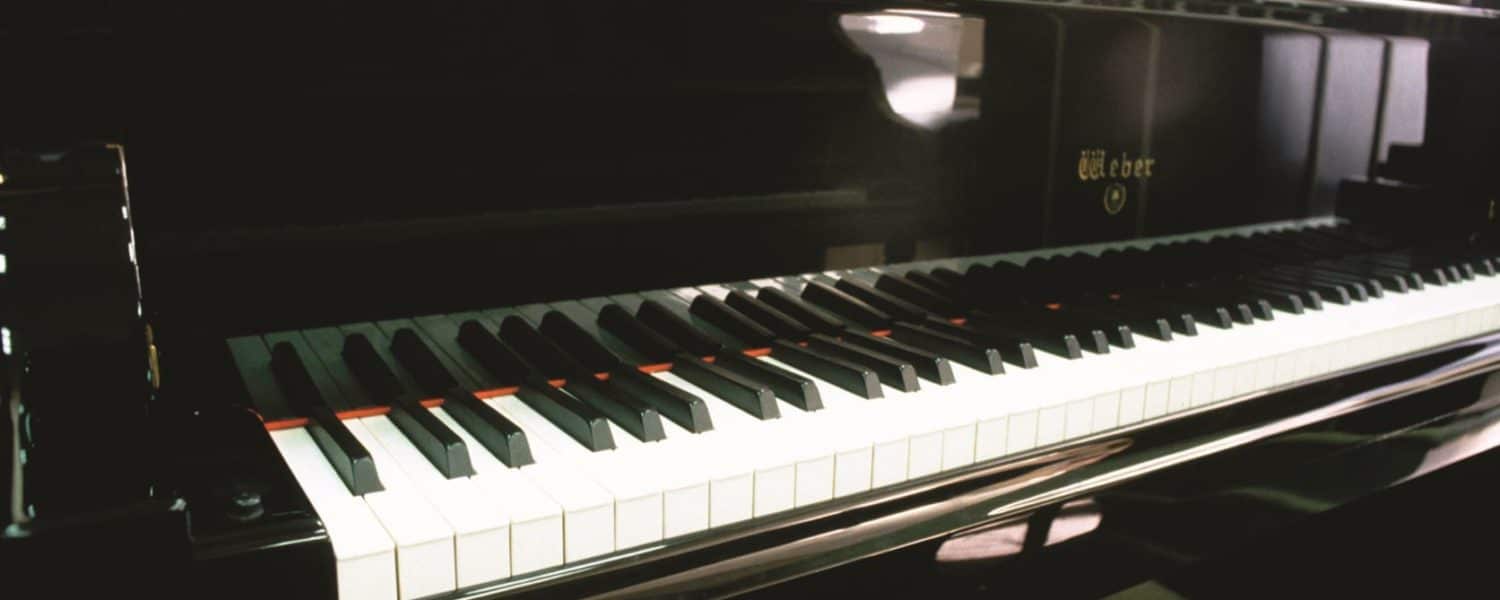This article originally appeared in the June 2006 issue.
By Lewis Spencer
Lewis Spencer is the pastoral team leader at Whitehall Baptist Church in Philadelphia. He is also a piano teacher and church music specialist at Bucks County Piano in Levittown, Pennsylvania. He served churches as a minister of music and associate pastor in Virginia, New Mexico and Arizona before moving to Pennsylvania.
How should a church get the best instrument at the best price with the best service? As a minister of music, piano teacher, piano salesman and now senior pastor, I have a unique perspective on this. Before shopping, there are decisions the church needs to make, information to collect, and questions to ask of any dealer.
Pianos are for sale all around us. Here is something you may not know: Piano manufacturers choose to sell their pianos through dealers. This is to ensure you have the best possible experience in the purchase, delivery and maintenance of your investment. Profitable piano makers know the value of a satisfied customer. Buying a piano from a private owner can be advantageous if you do not need delivery or a warranty and you understand its true condition. Having a technician check the piano may or may not be worth the cost. If you purchase a piano for your church from a neighbor, the newspaper or the Internet, you may save a little money but purchase many headaches.
Conversely, dealers often include their own service plan concurrent with the manufacturer’s warranty to cover the little repairs such as sticking keys. They also have professional delivery people who know how to move and install a piano. Dealers are trained by the manufacturers to provide the customer with the information they need to choose the appropriate piano for their needs. If you need a digital piano, the dealer should be able to teach you how to use all the features. The dealer is also your advocate in warranty issues. Normally, the dealer contacts the manufacturer, has the work approved, orders the parts and sends a certified technician to do the work.
So, say the need for a piano has been determined. A committee or a purchasing agent has been assigned by the church to procure one. Now what? You need to make the basic determinations.
Types of Pianos
For a worship center or sanctuary, a grand piano is usually the best choice if there is enough space and budget.
For a classroom, the vertical or upright piano is best with two exceptions. First, if the room is subterranean, you need to use a digital. Humidity in basements harms acoustic pianos. The humidity will make it difficult, if not impossible, to keep the piano tuned and in good repair. Second, if visibility is an issue, as in the event of an organist/choirmaster who directs the choir from the organ, placing an upright piano in the choir room may hide the director from the choir.
A console piano may be a solution, as they are shorter in height. However, they may be too small to be heard by a large choir. Options include a small petite grand piano or baby grand piano or a digital piano with an external amplifier and speaker system.
Appearance
Ebony polish is usually less expensive than other finishes. Wood grain finishes, although veneer, can cost more. Pianos also need to complement other wood finishes in same room.
Quality
Be realistic. The youth room may not need a new piano, and a used one may do just fine. However, the worship center deserves the finest music for God’s glory the church can afford.
Pianos are manufactured in a variety of grades. There are “price point” pianos, which are inexpensive and for light duty. There are medium-grade pianos appropriate for classrooms, rehearsal rooms or a chapel. Artist-grade pianos are well made, have a refined touch and wonderful sound, and are the first choice for worship, concerts and rehearsals. There are grand pianos and uprights in every grade. Pianos vary widely in price. Determining the appropriate quality of piano you need is a crucial step.
Budget
God may own the cattle on a thousand hills, but no single church does. We are to be good managers of God’s provision. This can include saving for a major purchase like a piano for the sanctuary. It is good to research prices and set a budget before you shop. Budget planning should also include accessories such as bench pads, lamps, moving dolly, dust cover, and key cover lock.
Process
How will you obtain information from dealers? The three most common methods are 1) sealed bids based on specifications, 2) bids on a particular make and model and 3) asking for a proposal.
Sealed bids make it difficult to compare “apples to apples.” Since dealers are given market areas, bids on a particular make and model are not likely to save you money. A proposal will let the dealer state the pros and cons of their brand(s) and open the door to questions to refine your knowledge and determine which piano is best for your situation.
Authority
Once there is agreement on type, quality, budget and process, assign authority to one person. This person becomes the link between the church and the dealer. There may be little decisions to make that are best made quickly rather than by committee. The music director or church pianist is often best equipped to evaluate pianos and do this job.
Brand Names
Piano makers all have their strengths and weaknesses. There is no one brand that is appropriate for every situation. The manufacturers assign territories to dealers, so comparing prices by brand can be difficult. For example, brand X piano has a dealer near you and in another city 75 miles away. In many cases, by contract, the dealer closest to you should be the one you use. But if that dealer has the higher price and the price is lower at the dealer further away, ask which will give you better service? Which will charge more for delivery?
Other factors are availability and history. The brand you know may or may not be available. It may also have changed ownership. This can affect quality and features. Further, you may not be aware of brands that are equivocal to your favorite. If you have not bought a piano recently, you may never have heard some very fine and less expensive makers of pianos. The best piano is the one that has the best sound, feel, appearance and durability you can afford.
Working with a Dealer
Look for a dealer with a good reputation, references (such as other churches and schools), and an established business location. A piano sales company at a temporary sales site in a state other than where the company normally does business is less likely to provide good service. Remember that pianos are heavy. The local dealer can give you better service and probably less expensive delivery.
Tell the dealer the determinations you made above and if you have a piano to trade in. Let them know if it is a single purchase or if you plan to buy more, as in the case of a new education building. Be up front, honest and open. Negotiating games may harm your church’s reputation and witness as well as cost more money in the long run. If you develop a relationship with a dealer, subsequent issues such as warranty work, additional purchases and tunings will be pleasant experiences.
Asking for an institutional or church discount is appropriate since many dealers desire repeat business from a good customer. Ask about delivery charges. If they say delivery is free, know you are paying for it in the price of the piano. Ask if the bench is included and what it looks like. If it is a small artist bench designed for one person and your church pianist plays duets with her daughter, you will want to get a duet bench. Ask if any tunings are included in the price. Some dealers tune a piano before delivery and provide a free tuning within the first year. Moving a piano does not affect tuning much. Change of environment as related to temperature and humidity affects tuning much more than motion.
Once you have made a list of dealers and have information from them, have the committee review and discuss it. Break it down to compare apples to apples. As much as it is possible, take emotion out of the process and use facts. How did it sound? Does the piano have the right touch? Will it look appropriate in the room? What comes with it in terms of warranty, delivery and accessories?
Usually, after some thinking and sharing the best choice will “miraculously appear.” At this point, turn the process over to your purchasing agent and let them arrange the purchase of the piano.
On or before delivery day, have all the financial, tax, warranty and any other contractual papers in order. Check the invoice for all items discussed. Have a space prepared for the piano including an easy-to-negotiate delivery path.
Finally, when it’s over, have a celebration day and dedicate the new piano to God for His glory and thank the people involved in purchasing it for the church.
The prayerful diligent effort to purchase a piano for God’s kingdom is an act of love for God, his people and love of music. The reward is heard and felt every time the piano is played. It is often the final finishing touch on the new sanctuary or education building that enthusiastically declares Solo Deo Gloria!












